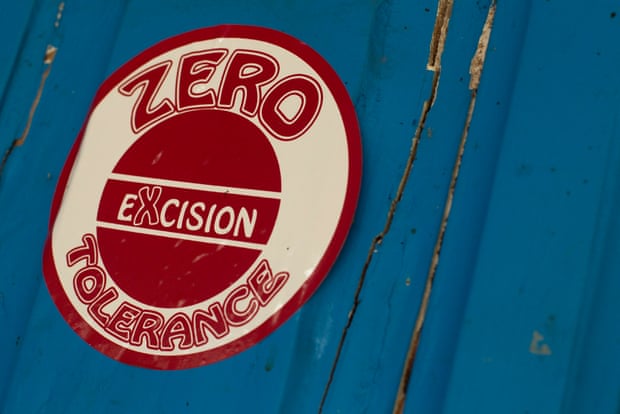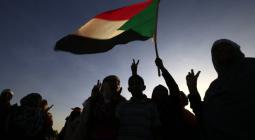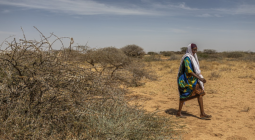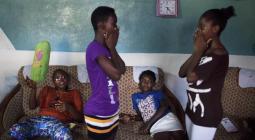‘I’m one of them’: the FGM survivor providing a lifeline in Leeds.
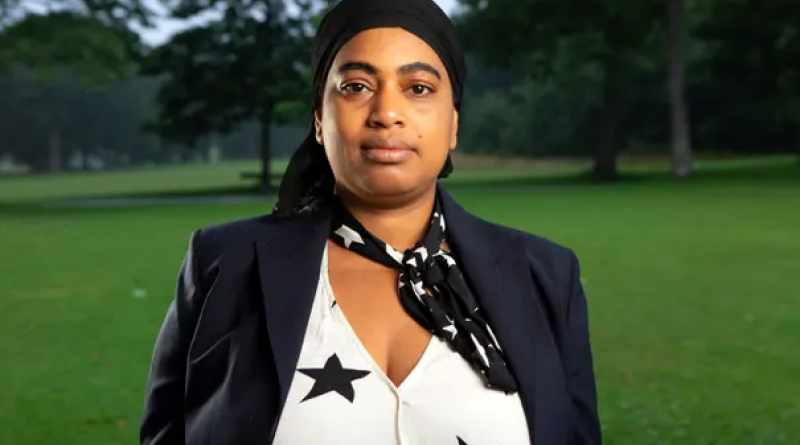
Stigma can stop women seeking help but Hawa Bah, who was cut at eight, reaches those suffering in silence to get them the care they need.
One night 14 years ago, Hawa Bah crept out of her house in Guinea and slipped into the darkness. She says she had lost count but it may have been her 14th or 15th escape attempt from an abusive marriage she was forced into with a man 37 years her senior.
Bah made her way through a maze of streets to the meeting point where a car was waiting with two strangers inside. When they took her to the airport, Bah felt her heart beating through her chest. She had not realised until then that she would be leaving her country. Aged 17, she had no belongings and no idea where she was going.
“When the plane hit the ground … I felt like I was dying,” she says. “I’d never even heard of the UK. I’m thinking: when my husband catches me, he’s going to kill me finally.”
Now 32, Bah is an advocate for the Blossom Clinic in Leeds, a red-brick building north-east of the city centre that provides services for survivors of female genital mutilation (FGM), the ritual of removing or injuring the genitals of a girl or woman for non-medical reasons.
In the UK, it’s thought that about 137,000 women are living with the consequences of FGM, which can include constant pain, cysts, complications in pregnancy, urinary tract infections, as well as anxiety, difficulty having sex, and depression.
Most victims of FGM come into contact with NHS services when they are expecting a child and those who are not pregnant might never come to the attention of health practitioners. They are underrepresented in the NHS’s FGM database, and are less likely to access health services, according to a British Journal of Midwifery (BJM) report, so the Blossom Clinic was opened two years ago to offer specialist treatment and counselling for these women.
It was one of eight pilot clinics launched in 2019 by NHS England in Birmingham, Bristol, Leeds and five London boroughs in an attempt to address the problem. The clinics are based on a model of holistic, women-centred care: specialists are joined by counsellors who provide emotional support, as well as an anti-FGM advocate who works in the community to connect survivors to healthcare professionals.
This is Bah’s role in Leeds. Women who have undergone FGM often suffer in silence due to stigma. Bah lived through the physically and mentally scarring ritual as a child in west Africa, and was told that she would die if she talked about it.
Now she uses her experiences as a survivor and refugee to connect with those hard-to-reach African women in diaspora communities who are disproportionately affected by FGM. Amid clinic closures during the pandemic and fears that those suffering with FGM were not referring themselves under lockdown, she has provided a lifeline for dozens of women.
Inside the Blossom Clinic, there is an air of calm. A woman sits quietly with her children in the waiting room.
Run by three women, in partnership with Touchstone, a Leeds-based charity providing support to mostly black and minority ethnic communities, the clinic is open every other Tuesday. Nicole Ackie and Andrea Taylor, midwives and FGM specialists, assess patients with a series of detailed questions about the procedure before discussing the health complications.

Women with the most extreme symptoms are most likely to be victims of type-3 mutilation, or infibulation, in which the labia are cut and sometimes sewn together to partially seal the vagina. In these instances, deinfibulation – surgery to reopen the labia – is an option.
Each step of the way, Bah is there. Employed by Touchstone, she often makes the initial contact, arranges appointments, meets women at the railway station and holds their hands during deinfibulations. She speaks four languages, so she can translate, and keeps in contact to offer support for other issues such as housing or domestic violence.
“When it’s such a sensitive topic, you really need to put the word out,” says Ackie, a midwife at St James’s university hospital, as well as at the Blossom Clinic. “Hawa did that. She knows where these women are and she’s able to find them.”
Bah lived a happy life in Guinea until, aged seven, her father married a second wife. This caused family tensions and Bah’s mother was forced to leave. “In our culture, a woman isn’t allowed to keep the child,” she says, “so I didn’t go with her.”
Old scars
At the age of eight, Bah was taken by her new stepmother into the forest, where a woman from the neighbourhood pinned her to the ground, muffled her screaming with a cloth and started cutting. Five years later, she was forced to marry an “old man”, she says. She longed to go to school with other 13-year-olds but instead, she had to spend hours in the kitchen cooking peanut soup and cassava leaf stew for her husband’s large family. She also endured physical and sexual abuse.
Sitting on a sofa in her flat in the Leeds suburb of Chapeltown, she pulls up her sleeves. “You see,” says Bah, revealing old scars. “I ran away but my husband and father paid the police to find me. Then they beat me.”
When she arrived in the UK, Bah spent several weeks in a shelter until she was moved to Leeds. While she waited for news of her asylum claim, she went to English classes and volunteered with charities, such as Solace, which works with refugees.
Meanwhile, Bah suffered. She had trouble urinating and was often unbearably itchy from genital scarring but felt too scared to see a doctor. As the years passed, she learned more about the practice from others in her community. Her older sister had died in Guinea when Bah was a child. “I was small,” she says. “I thought God took her life.” Decades later, she realised her sister had probably died from FGM-related complications. It proved to be a turning point for Bah.

In 2014, she started working as an FGM campaigner for Black Health Initiative, a Leeds-based charity, before launching her own charity organisation, HawaDal Peace of Mind, two years later to help new arrivals settle into life in the UK. Bah used this safe space to air sensitive concerns, such as FGM and the forced marriage of children, with women in the group.
Five years later, she has developed a network among the African migrant and refugee population in Leeds. One hot afternoon last month, as she stood outside her home handing out food parcels of beans, milk and eggs to half a dozen women, it’s easy to understand why – her smiling face radiates warmth.
It has been harder to reach women during the pandemic, but Bah keeps in contact with as many as she can via WhatsApp. “If you don’t make women feel comfortable, it’s very hard to bring them to an FGM clinic because they don’t want to talk,” she says. “They don’t want to start remembering. But often the moment they hear my voice, they can tell I’m one of them.”
The Blossom Clinic team has been able to meet women face-to-face for only 15 months due to startup delays and Covid-related closures, so it has only been able to help 46 women so far. Most are from Guinea, the Gambia, Sierra Leone and Eritrea.
“We felt it was important that the advocate was able to look women in the eye and say: ‘I know how this feels’,” says Alison Lowe, the former head of Touchstone. “That’s how we were going to get women through the door. I think our numbers are among the highest in all the pilots and that’s because of the connection that Hawa is able to make with the women.”
Several FGM specialists fear that, given the delays and closures caused by the pandemic, some clinics would be unable to continue. “It has been really terrible timing in terms of setting up new services and then trying to truly analyse their worth, or the number of women who have been helped,” says one midwife, who asked to remain anonymous. “What’s true is that women 100% need these resources. It’s just quite difficult to prove, especially during coronavirus.”
NHS England said more than 200 women have had help from the eight FGM clinics since 2019 and that funding had been extended for another year.
The Blossom Clinic will be permanently funded by West Yorkshire and Harrogate clinical commissioning groups, which plan and manage local NHS services. Liz Wigley, a commissioning manager at Leeds CCG, says: “It’s a relatively small investment for a big positive change.”
In January, Bah met a woman who was desperately seeking a deinfibulation. She had suffered type-3 FGM, the most severe, and for years had been unable to have sex with her husband. Several months after the operation, the woman became pregnant. “She finally got peace,” says Bah.
Bah has not spoken to her family in 14 years. Sometimes she muses about going back to Guinea to find her mother, and to thank the older woman who helped her escape. But Bah knows she is making a difference in Leeds. “I have friends here now. I have a strong community. Life is not perfect, but it’s better.”
This article is published in partnership between the Guardian and the Fuller Project.
August 2021
The Guardian
